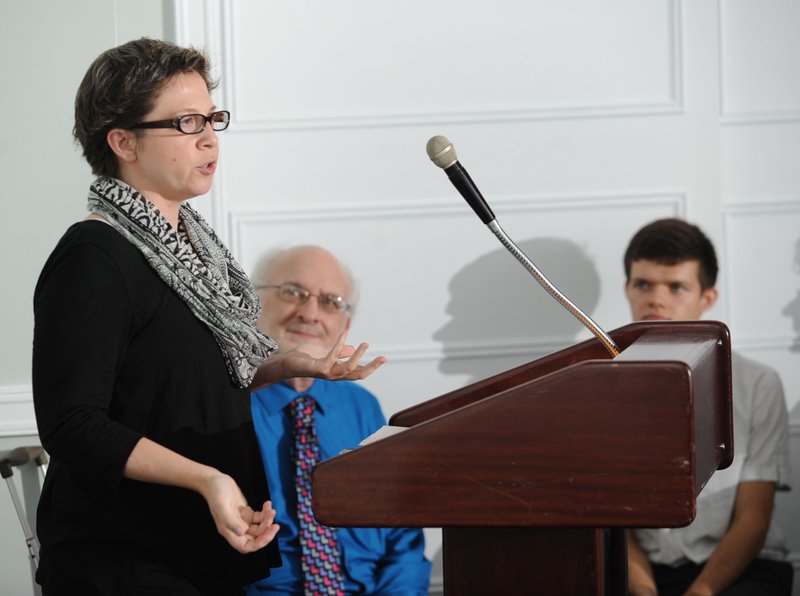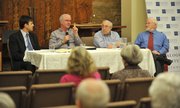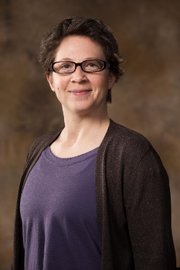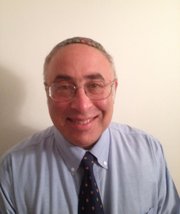Beginning next month, students at the University of Arkansas will be able to pursue a minor in Jewish studies. The new interdisciplinary program is part of the Fulbright College of Arts and Sciences.
Director Jennifer Hoyer and Jacob Adler, assistant professor in the religious studies program, have been working toward establishing the Jewish studies program for years. Adler has taught courses related to Judaism for several years and most recently taught an introductory class on Jewish language this summer.
Hoyer, who teaches world languages, literature and cultures, has also offered courses related to Jewish culture and history in Germany, as well as in Holocaust writing. Other faculty members from diverse areas of study have also touched on Jewish history, literature and culture in their classes.
So Adler and Hoyer decided to develop a program to bring the various classes together.
"It's a many-pieced puzzle, really," Hoyer said. "The real game-changing thing was we applied for and were awarded a Legacy Heritage Fund grant for Jewish studies. It's a national grant that exists to found or expand Jewish studies programs outside of major metropolitan areas."
The grant provided $18,000 to be used to finance several events both on and off campus to help raise awareness about Jewish history, art, literature and culture and to gauge interest in an academic program.
"Because we did such a good job of really attracting lots of different kinds of people at lots of places we were able to show that there was enough interest to create an area of studies program," Hoyer said.
The program includes five core faculty members -- Hoyer and Adler, as well as Gwynne Gertz (English), Richard Sonn (history) and Nancy Arenberg (French). Classes offered for the fall semester include American Jewish Literature, Representations of the Jew in Medieval England and Introduction to Judaism, a required course that will give students essential knowledge of the Hebrew Bible, philosophy, literary trends and ancient Near East and modern Middle Eastern history, Adler said.
"Then they can build from there, exploring how these foundational ideas appear in other disciplines, ranging from literature and languages to politics, history and archaeology," he said. "We hope, as we grow the program, to include many other disciplines, such as architecture, math, natural sciences and other area studies programs."
Arkansas has a small Jewish population -- less than 1 percent of state's residents are Jewish, according to the Pew Research Center. But Adler said that has no bearing on the viability of the Jewish studies program, adding that most of the students taking Judaism courses at the university are not Jewish.
"They are just interested," he said. "Judaism is in the background of Christianity, so Christians have some motivation to know about it, and it's also very much a topic in world news today or for anyone interested in current events."
Hoyer said the program is meant to be an open, diverse and welcoming space for dialogue for a wide variety of students.
"I think there tends to be a sense among a lot of people that any given area of study is somehow only meant for people who consider themselves part of that area -- Asian studies, African-American studies count in that realm. It's not true," she said. "These are intellectual pursuits open to everybody, and that's all the more reason to have programs to introduce people to have a chance to learn something about them."
Hoyer said she hopes to be able to hire instructors in the future so specific classes can be offered on a more regular basis -- for example, a faculty member who can focus on Jewish languages full time, or someone who could teach about the Jewish Southern experience.
"We also want to connect to other areas of studies in research areas that might seem kind of unusual but aren't, like Sephardic Jewish experience. Many Americans are Sephardic Jews, and we would really like to be able to offer a connection to Latin American studies or also to Jews of color," Hoyer said.
To obtain the minor, students will need to take 15 hours of Jewish Studies courses, with the only required class being Introduction to Judaism. The others can come from many different electives, Hoyer said.
"They [the students] just have to talk to me to work that out," she said. "It's a very accessible minor and can be connected to just about any discipline."
Hoyer said it's gratifying to see the program finally come to fruition.
"The roots have been here a long time, but we just didn't have a way to make it a cohesive program," she said. "It's something that really has been quite lacking. There are not many states in the Southeastern Conference without Jewish studies. We were one of them and now we are the first and only one in Arkansas."
Religion on 07/11/2015



